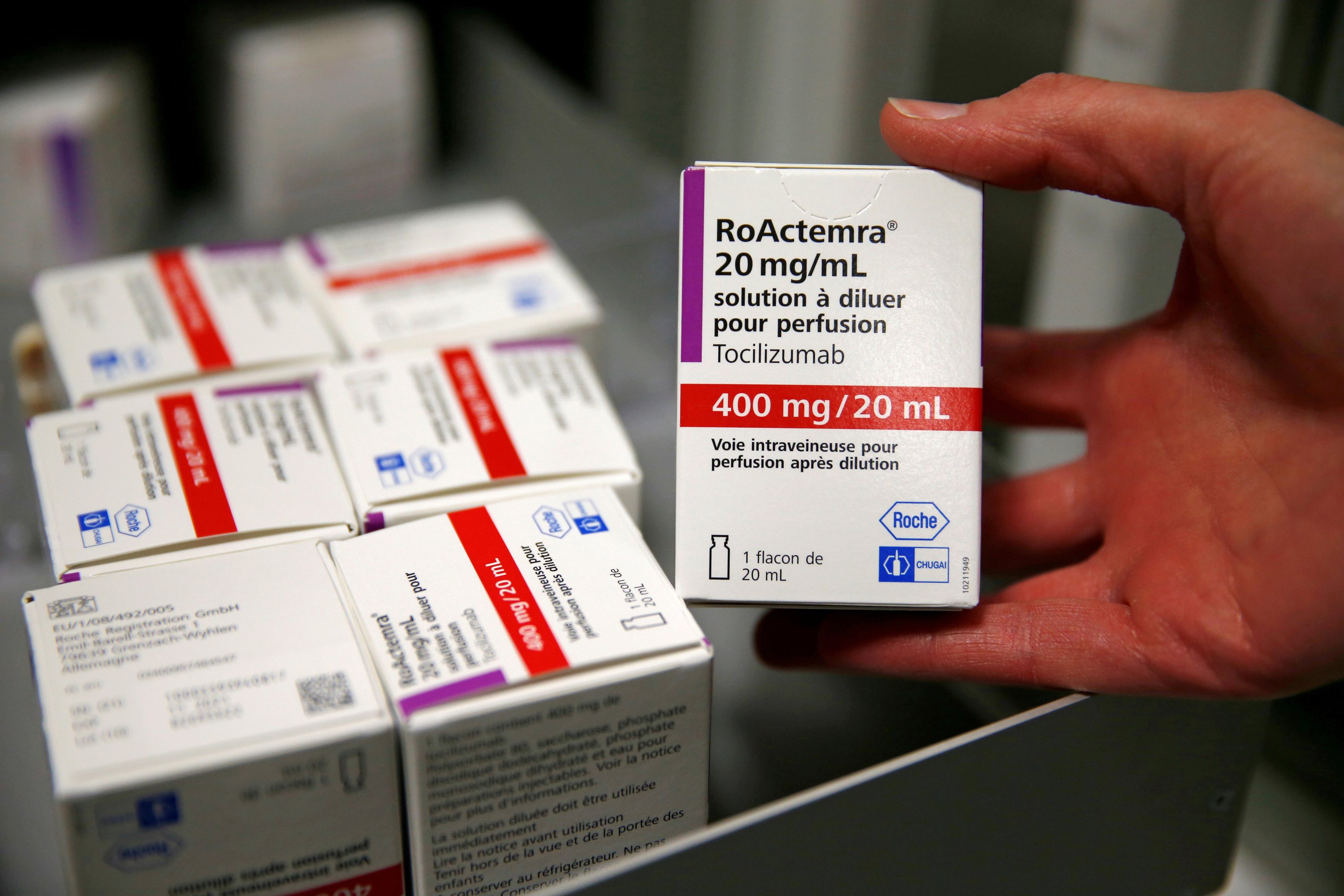© Turkuvaz Haberleşme ve Yayıncılık 2026
This week's roundup of some of the latest scientific studies on the coronavirus and efforts to find treatments and vaccines for COVID-19 explores the benefits of maternal vaccination, how the vaccinated may be less contagious and using cloth coverings furniture may slow the spread of the virus.
COVID-19 post-vaccination may be less contagious
People who get a COVID-19 vaccine can still become infected with the coronavirus, although they are likely to be protected against severe illness, and a new study suggests they also may be less contagious.
At a large Israeli health maintenance organization where 650,000 members received the two-dose vaccine from Pfizer Inc. and BioNTech SE, researchers identified 2,897 patients who later tested positive for COVID-19. The amounts of the virus on swab samples from the nose and throat were reduced fourfold for infections occurring at least 12 days after the first dose of vaccine compared to what is typically seen in unvaccinated COVID-19 patients, the research team from Maccabi Health Services and the Technion – Israel Institute of Technology found.
Viral loads are known to be linked with contagiousness and disease severity. But this study was not a randomized trial and it did not look at patients' viral loads over time, nor the rates at which their contacts became infected, which would be the most direct evidence of whether a vaccine reduces virus transmission. Still, the authors concluded in a paper posted on the medical website medRxiv ahead of peer review, "These reduced viral loads hint to lower infectiousness, further contributing to vaccine impact on virus spread."
Even if you are vaccinated, doctors strongly advise you wear a face mask to further limit the possible spread of the coronavirus.
COVID-19 vaccine in pregnancy may protect newborns
COVID-19 vaccines given to pregnant women may help protect their newborns, a case report suggests.
Florida doctors described a front-line health care worker who received the first dose of the Moderna vaccine three weeks before going into labor. Her healthy baby girl had so-called IgG antibodies to the coronavirus in her umbilical cord blood. Finding these antibodies in the baby after a single dose of the vaccine suggests "there is potential for protection and infection risk reduction from ... maternal vaccination," the doctors said in a paper posted on medRxiv ahead of peer review.
The ideal timing of vaccination during pregnancy is not clear, they said, nor is it clear how well these antibodies will protect the infant, or for how long. U.S. Centers for Disease Control and Prevention guidelines say that because only limited data is available on the safety of COVID-19 vaccination during pregnancy, "getting vaccinated is a personal choice for people who are pregnant."
Previously in Singapore, a newborn baby born to a mother infected with the coronavirus was found to have antibodies for COVID-19, raising hopes for vaccine-induced immunity as well.

Study shows range of COVID-19 benefits from arthritis drug
A large study added to evidence that Roche's arthritis drug tocilizumab, sold under the brand name Actemra, cuts the risk of death among hospitalized patients with COVID-19, shortens their hospital stays and reduces their need for mechanical ventilation.
The randomized trial involved more than 4,000 patients with varying degrees of illness. Some needed only simple oxygen therapy, while others needed mechanical ventilation. Most also were receiving a steroid such as dexamethasone. The rate of death within 28 days was 29% for patients in the tocilizumab group and 33% in the control group, according to a report posted on the medical website medRxiv ahead of peer review.
After accounting for patients' age, sex and other risk factors, tocilizumab was associated with a 14% reduction in the risk of death. "We now know that the benefits of tocilizumab extend to all COVID patients with low oxygen levels and significant inflammation," study co-leader Peter Horby of the University of Oxford said in a press statement. Used in combination with steroids, Horby added, "The impact is substantial."
Cloth coverings in public spaces may slow virus spread
Covering furniture in hospitals and offices with surfaces that speed the evaporation of respiratory droplets will slow the spread of COVID-19, a new study suggests.
Earlier research found that the virus remains active for a longer time on impermeable surfaces. In the new study, researchers found that once respiratory droplets disappear, a thin liquid film remains over the exposed solid area that serves as a medium for virus survival. That thin film evaporates much faster on porous surfaces, they noted in a report published in Physics of Fluids. They found that the virus can survive four days on glass and seven days on plastic or stainless steel, but only two days on cloth and three hours on paper.
"Based on our study, we recommend that furniture in hospitals and offices made of impermeable material, such as glass, stainless steel or laminated wood, be covered with porous material, such as cloth, to reduce the risk of infection upon touch," co-author Sanghamitro Chatterjee of the Indian Institute of Technology Bombay in Mumbai said in a statement. Her team says seats in public places could also be covered with cloth to lessen the risk of disease spread.
